Exploring the great outdoors is an adventure the whole family can enjoy together, but it can get cold in the woods at night. I remember one camping trip to Vermont in late spring when we weren’t the most prepared.
The temps dropped below freezing for three nights, and while we all had a good , a good heater would have made a big difference between pleasant memories and an experience we would all just as soon forget. To make your nights warmer, here is a roundup of the five best tent heaters for tent camping:
Best Tent Heaters
1) Mr. Heater Buddy Tent Heater
The Mr. Heater Buddy tent heater is the gold standard of tent heaters. It is super easy to use and produces a good amount of heat. With a max heat output of 9000 BTUs, this heater produces enough heat for most tents. The tent heater has multiple settings, which allow you to adjust the heat output so that it is suitable for your tent size and temperature.
This tent heater is suited for many camping applications. A swivel regulator allows for connecting to disposable portable bottles or can connect to a bulk tank with an adapter. This is a really nice feature because if you are not planning on using it for an extended period, you can simply attach one of the small disposable propane bottles. On the other hand, if you will be using it for longer periods of time, then you can use a hose that can connect to the larger propane tanks.
This is one of the best tent heaters and has some great features. Additionally, this is a that is rated for indoor use. They specifically state that it can be used inside tents.
Pros
- Heats up to 225 square feet.
- 4,000- to 9,000-BTU output.
- Radiant heater for spaces up to 225 square feet.
- Clean-burning and almost 100-percent efficient.
- Approved for both indoor and outdoor use.
- Auto shut-off mechanism if the unit is tipped over, the pilot light will go out.
- , which will automatically shut off the if levels get too low.
- Will run on portable 1lb propane bottles or large bulk tanks with an adapter and regulator.
- Provides maximum heat with a minimal footprint.
- Single control start knob with dual heat settings.
Cons
- Heater may shut off when operating at altitudes above 7,000 feet.
- Use of unauthorized accessories may cause injury and void the warranty.
- Fairly high fuel consumption.
- Maximum run time at the maximum BTU setting with portable bottles is three hours.
- Adapter and regulator for bulk tanks are not included.
2) Honeywell 360 Degree Electric Tent Heater
This Honeywell portable heater makes a good tent heater if you have access to electricity. With the 360 design, this makes a great tent heater because you can place it in the middle of the tent, and it will provide warmth evenly in a full circle. The heater also comes with other features that make this one of the best tent heaters. It offers an auto shut-off if tipped over, an auto shut-off if it overheats, as well as a programmable thermostat.
This space heater is electric, so it won’t put out as much heat as some of the larger propane heaters, but it will work well in smaller tents as well as in temperatures that are not extremely low. One large benefit to an electric heater is you do not have to worry about running out of propane. Simply plug it in, and you are ready to go. Additionally, there is no worry about carbon monoxide with electric tent heaters.
Pros
- Two thermostatically control heat modes include 1500 and 750 settings
- Overheat and tip-over protection
- Adjustable thermostat control
- Quick and quiet heating
- Timer with 1, 2, 4, and 8-hour settings
Cons
- Heater has limited heating ability, so is only suitable for heating smaller tents
- Must have access to electricity at the campsite
3) Mr. Heater Big Buddy Tent Heater
Mr. Heater’s Big Buddy tent heater is very similar to the Buddy heater, except it has two heating elements that allow it to produce twice the amount of heat as the Buddy tent heater. Additionally, instead of only being able to attach one small propane bottle, you can attach two. This is important because when on high, it will burn propane twice as fast as the Buddy heater on high.
Like the Buddy heater, the Big Buddy heater can be attached to a larger propane tank (up to 40 pounds) with an additional hose. This is the heater that we use, and we connect it to a 20-pound propane tank so that there is no worry about running out of propane. This is a great option if you are wanting to a .
Pros
- 4,000- to 18,000-BTU heat output
- Radiant heater for spaces up to 450 square feet
- Clean-burning and almost 100-percent efficient
- Approved for both indoor and outdoor use
- Auto shut-off mechanism if the unit is tipped over, the pilot light will go out, or if low oxygen levels are detected
- Will run on portable 1lb propane bottles or large bulk tanks with an adapter and regulator
- Provides maximum heat with a minimal footprint
- Single control start knob with dual heat settings
Cons
- Tent heater may shut off when operating at altitudes above 7,000 feet
- Use of unauthorized accessories may cause injury and void the warranty
- Fairly high fuel consumption
- Maximum run time at the maximum BTU setting with portable bottles is three hours
- Adapter and regulator for bulk tanks are not included
4) Martin Catalytic Tent Heater
This flameless catalytic propane heater offers 3000 BTUs of heat in a small package. Designed for backpacking, the Martin heater has legs that swing open to provide a firm base for the unit to stand on and then retract for storage. This would be great for those who need to save space and will be camping in a smaller tent or in weather that won’t be too cold.
This little heater can run for 7 hours on a single 1-pound bottom of propane. This tent heater offers an easy way to provide heat inside your tent without the need to bring along a large heater. Additionally, with such a long run time on a single propane bottle, you won’t have to worry about bringing lots of extra propane.
Pros:
- Safe catalytic design
- Uses a disposable one-pound propane cylinder
- Efficient catalytic technology burns propane slowly
- Up to seven hours of run time
- Recommended for families with children
Cons:
- Does not have the option of connecting to a bulk propane tank
- Not powerful enough for anything but very small tents
5) Tooluxe Butane Tent Heater
The Tooluxe Heater is unique among this list of the best tent heaters because it is the only butane heater on the list. A great feature is that this heater can run on butane as well as propane. This heater is small, compact, and will produce up to 5800-BTUs. This heater uses catalytic heating technology, so there is no open flame to worry about. Because this heater can run off of butane, it can be cheaper to run the heater because butane cartridges tend to be less expensive than the 1-pound propane bottles.
On a standard butane cartridge, the theater will run for about 5 hours. The only real downside to this butane heater is that butane will start to freeze up at temperatures below 32 degrees. If you are camping in weather that dips below freezing, then you’ll want to make sure you have propane for the heater.
Pros
- Up to 5800-BTU output
- Catalytic heater technology
- Ceramic burner
- Pressure sensing safety shut off device
- Gas consumption 100gm/hr
- CE certificate
- 5 hours of run time on a single cartridge
- Small and compact
Cons
- Butane will begin to freeze up below 32 degrees
- No ability to connect to larger cartridge/tank
6) TMS Camping Wood Stove Tent Heater
Designed to heat large wall tents and measuring just 18 inches long by 10 inches wide by 12 inches tall, the TMS wood stove can be used as both a heater and a cookstove. The stove can be partially disassembled for easier transport and will really help take the chill off those cold mornings. Wood burning stoves like this one will produce a lot of heat and so work well for very low temperatures.
The downside to these types of tent heaters is that you have to have a tent specifically designed to work with it. Typically, these types of wood-burning stoves are found in wall tents (canvas tent with metal pole frames). Additionally, the stove will need a continued source of wood to burn so you will need to feed the stove every so often to keep it running.
Pros:
- Burns wood that can most often be found on-site, often for free
- Includes stove pipe, vent, spark arrestor, and flue sections
- Has two removable side cooking tubes
- Front and rear air-flow regulators
- Easy access ash clean-out
- Hinged top grate doubles as a carrying handle
Cons:
- Overall bigger, bulkier, and heavier than other style heaters
- Weighs over 20 pounds
- Should only be used in canvas tents, and not in nylon tents
7) Mr. Heater Little Buddy Tent Heater
This indoor-safe portable heater is designed to heat areas up to 95 square feet. It has a low-oxygen shut-off and tip-over safety switch. This is an awesome little tent heater that is great for small tents. If you will be camping by yourself or in a small tent with a few other people this heater would be great. It doesn’t take up much room and will produce 3800-BTUs.
With such a small size this tent heater can run for over 5 hours on a single 1 pound propane bottle. Additionally, like the other Mr. Heater tent heaters, it has an automatic low oxygen shut off and is rated for indoor use. This is a great heater that will save you space and will work perfectly for smaller tents and spaces.
Pros:
- Automatic low oxygen shut-off system
- Accidental tip-over switch and auto shut-off
- Swivel regulator for easy LP cylinder and hose installation
Cons:
- Not designed for operation at high altitudes
- No ability to connect to larger propane tanks
- Maximum operating elevation of 7000 Ft.
8) Mr. Heater Tank Top Heater
This tank top heater will put out a lot of heat. With a range of 29,000-45,000 BTUs, this is definitely the most powerful propane heater on this list of the best tent heaters. It produces so much radiant heat that it is probably not a great option for most standard tents. Additionally, unlike the other Mr. Heater tent heaters on this list, this heater is not rated for indoor use.
Where this heater excels is for outside use. This would work great under a popup tent/canopy in lower temperatures. We’ve used one of these in around the kitchen area of our camp when it gets really cold outside. It helps to keep the entire area a little warmer and makes meal prep easier. The for this is very easy to use, which makes it easy to find the right about of .
Pros:
- Produces a lot of heat
- 360-degree heat production
- Safety shut off tip-over switch
Cons:
- Not designed for inside use
- High rate of fuel burn
Camping Tent Heater Guide
Types of Camping Heaters
In regards to fuel, there are essentially three types of heaters for tents:
- Gas: These heaters run on bottled gas, with liquid propane being the most common. Gas heaters come in various configurations and heat output ranges, called BTUs.
- Electric: Electric heaters come in a range of power output settings, typically 750 and 1,000 watts, with the higher the power output rating, the more heat being produced. Obviously, electric healers require some form of electricity to operate.
- Wood-Fired: These are the oldest and most tried-and-true types of tent heaters for camping. These are small and lightweight wood stoves, relatively speaking, that may or may not fold down for easier transport.
How to Choose The Best Heater
Picking the right heater will depend on how you plan to use it. Obviously, if you don’t plan to camp in an area with a power source, an electric heater isn’t the best choice. Heaters have a British Thermal Units rating, most commonly referred to as a BTU. The BTU rating is defined as the amount of heat needed to increase the temperature of a pint of water by one degree Fahrenheit.
Pros and Cons of Heater for Tents
As with everything, picking a camping heater is a trade-off.
Fuel:
The heaters that will produce the most heat will also consume the most fuel per hour of operation. This is not just a cost concern, but you will need to pack in enough fuel to keep the heater going. For example, if you are using a propane heater, a 10,000 BTU unit will burn roughly twice the amount of gas as a 5,000 BTU heater.
When it comes to finding a , there are multiple fuel types to choose from. You can choose from a , , , , , wood , , , and more. The key is to evaluate the pros and cons of each and determine which one will be the right for you.
Weight:
If you are going to set up camp close to a road, weight may not be an issue. However, weight becomes a principal concern if you are packing into the backcountry. Portable propane heaters and electric heaters come in various sizes, with some being light enough to take backpacking.
Small wood stoves have been used to keep large cabin-style tents toasty warm since the time of the mountain man. However, these are not lightweight and are only practical if camping close to a road or having access to an ATV or horses to pack your gear. Due to the weight, you can pretty much forget about taking any type of wood heater on a backpacking trip.
Space:
The size of the heater must be matched to how much space you have to heat and how much room you are willing to allocate to pack the heater along with all your other gear. Additionally, you’ll want to consider if you need a more or if a more stationary would be better for you.
Propane and electric heaters come in various sizes, with some being small enough to fit the palm of your hand.
There are some very portable wood stoves that fold down. To a fraction of their assembled size. While there is still a weight concern, these wood stoves don’t take up much cargo space.
Ventilation:
Because propane burns clean, there is virtually no danger of carbon monoxide poisoning by a properly functioning propane appliance. The caveat to this is the area the unit is heating must be well-ventilated to achieve complete combustion of the fuel.
We recommend not sleeping with a propane tent heater running. We use them to warm up the tent before we go to bed and right when we wake up. Additionally, we also have a CO2 monitor inside the tent for an extra layer of protection.
Burning wood produces high levels of carbon monoxide, so it is imperative that a wood-burning heater has a well-fashioned stovepipe so all of the smoke is vented outside of the tent. However, because these stoves produce so much heat, care must be used to keep flammable material, such as the wall of a tent, away from the stove.
Ventilation is not really a concern with an electric heater in a tent.
Attributes that Differentiate Tent Heaters
Aside from the aforementioned BTU rating and fuel sources, the biggest consideration when picking a tent heater is comparing apples to apples. For example, some electric and propane heaters will have a safety switch that will shut the unit off automatically should it tip over. This feature would obviously not be found on a wood stove.
The Best Way to Use a Tent Heater
There is really no right way to use a heater in a tent, but there are some wrong ways. Here are some things to keep in mind:
- Select the right size heater for the size of the area you want to heat. Picking a heater that is too small for the job will require the heater to work overtime, and you will still be cold.
- Set a gas or electric heater to the lowest possible setting when going to sleep. This will reduce or eliminate most of the safety concerns while still doing the job you got it for.
Calculating BTUs
Calculate the BTUs needed to heat your tent by first determining the tent’s area in cubic feet with this formula:
- Tent length x tent width x tent height = tent cubic feet.
Now subtract the outside temperature from the desired inside temperature in degrees Fahrenheit to determine the desired amount of temperature increase and then execute this formula:
- Cubic feet x temperature increase x .2394 = required BTUs.
If you don’t want to get too hung up on the math, just remember that the higher the unit’s BTU rating, the more heat the unit will produce.
Safety Concerns and Precautions for Using Tent Heaters
The biggest controversy surrounding the use of tent heaters is asphyxiation and fire. All heaters use oxygen for ignition and combustion, with wood using the most, propane second, and an electric heater using the least.
Ventilation is always a critical aspect when running any type of heater in an enclosed area. For non-vented heaters, like portable gas or electric units, there must be a constant flow of air into the area where the heater is used to provide for both adequate combustion for the heat source as well as ventilation to guard against asphyxiation.
Regardless of what type of heater you choose, all flammable materials must be kept far enough away from the heater to prevent fire. Some heaters will have a minimum safe distance marked on the unit.
Conclusion
In the end, picking the best tent heater will depend on how you plan to use it. In reality, this means there can be no clear-cut winner that will work best in all situations. I like to look at it from the perspective of what will give me the biggest bang for my buck and how versatile it is.
For my money, when camping with my family, and if not packing in too far from the road, the winner is the heater that will heat the largest space. That usually translates into the unit that puts out the most heat. For us, that means we use the Mr. Heater Big Buddy (the wood-burning stove can put out more heat, but we currently do not have a tent that will work with it).
We use the Big Buddy because we camp in extra-large tents (currently a 20-person tent), but most people and families in standard-size tents will do fine with the Mr. Heater Buddy.
However, if firewood will be plentiful and you will be in a big canvas tent, from years of personal experience camping in cold weather, I would say go with the TMS wood camp stove. The simple reason for this recommendation is that nothing will heat up your tent like a raging fire.

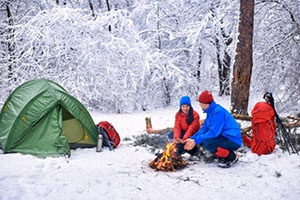
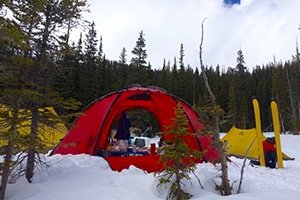

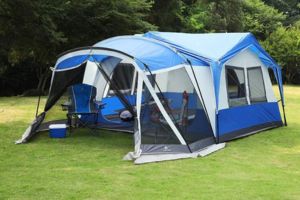
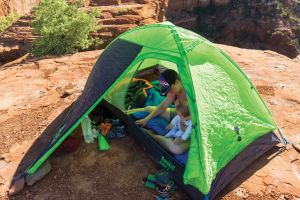

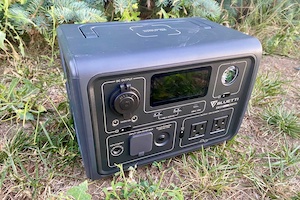
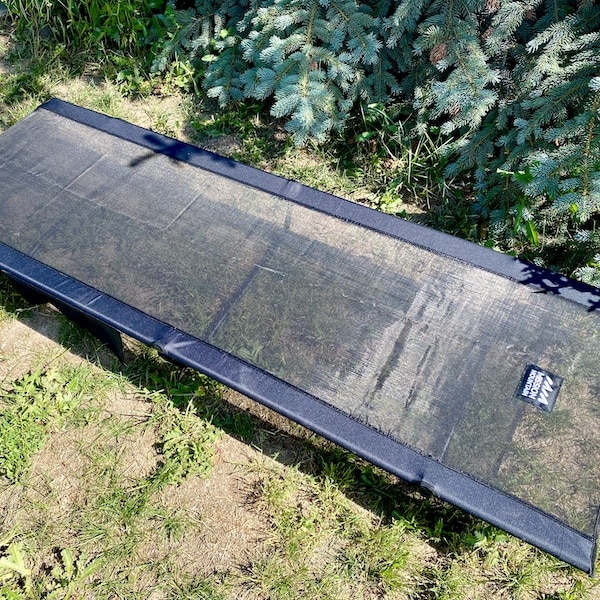
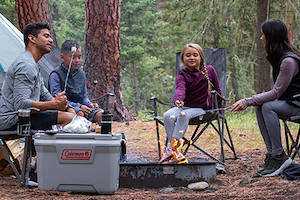

We have the Mr. Heater Buddy 9,000 BTU heater and it works great! We use it in our 24′ RV and it keeps us nice and toasty and that’s on the lowest setting!
Definitely agree. The Mr. Heater Buddy is a great heater and is also the one we use.